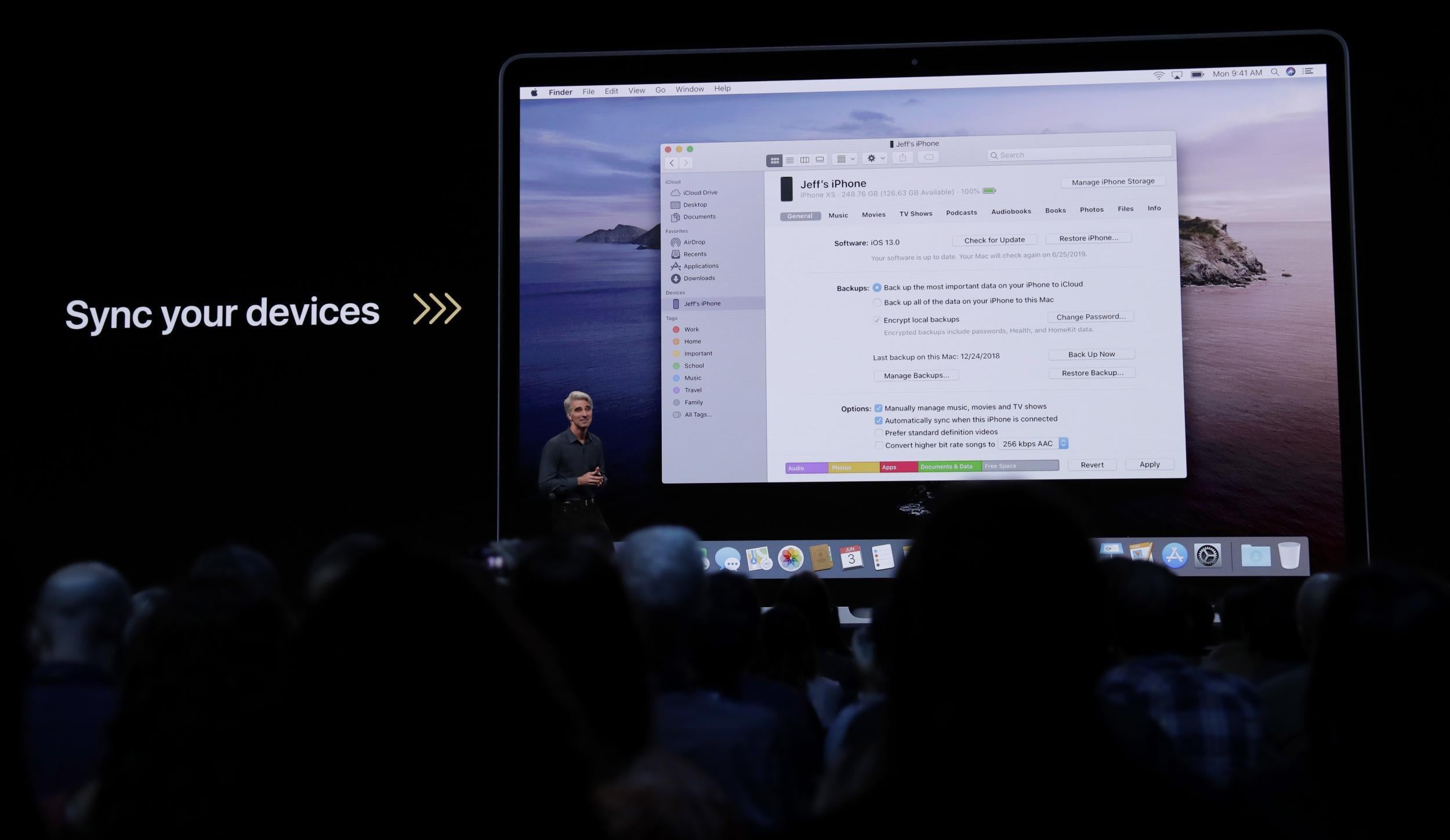iTunes shutting down: Apple confirms death of music app at WWDC 2019 event
Almost 20 years after it was launched, famous app will be swapped for three new ones
Apple has killed iTunes, its most famous app.
Launched nearly 20 years ago, the app powered the iPod and then iPhone era, redefining how people listened to music and watched films. But over that time it also became widely mocked for being slow and bloated, as Apple added more and more features.
Now iTunes is dead, Apple has announced, and will be replaced by individual apps for its various functions. It will instead have a music app, a podcast one and a TV app, it said.
The Music app looks largely similar to the old iTunes app. But it removes all of the features that were not supporting music, instead focusing on songs, either stored locally or through Apple's own streaming service.
Apple has been looking to encourage its users to sign up to its streaming services, which currently include Apple Music and will soon bring TV too.
It did not say what would happen to the iTunes Store, which as much impact on the music industry as the app itself. Songs inside the app are unlikely to disappear, but it is unclear whether users will still be able to buy new ones.
The company made the announcement while making a series of jokes, during which it poked fun at its history of adding a series of different features to iTunes and gradually making it more bloated and slow. Software head Craig Federighi suggested it would add a calendar and email clients to the app – before saying that the truth was they would be getting rid of the app entirely.
All of the changes will come in the new version of MacOS, named Catalina, which will be released later this year.
The death of iTunes as one of the first things that Apple revealed about the new software, before it pointed to the entirely new and separate versions of the apps that will replace it.
"“With macOS Catalina, we’re bringing fresh new apps to the Mac, starting with new standalone versions of Apple Music, Apple Podcasts and the Apple TV app,” said Mr Federighi said in a statement. “Users will appreciate how they can expand their workspace with Sidecar, enabling new ways of interacting with Mac apps using iPad and Apple Pencil. And with new developer technologies, users will see more great third-party apps arrive on the Mac this fall.”

Some had worried about how the Mac would continue to sync with iPhones or iPads without using iTunes. But Apple said that would be handled by MacOS itself, with options showing in the finder menu rather than in the iTunes app.
That will include other features such as the ability to use an iPad as a second display for your Mac.
It also brings a new technology called "Project Catalyst", which will allow developers to turn their iPad apps into Mac apps. It is not clear whether the new versions of Music, Podcasts and TV – which look similar to their equivalents on iOS – were written using these same technologies.
Apple made the announcement at its Worldwide Developers Conference, its biggest software event at the year. In the same presentation, it revealed a new Mac Pro, a redesigned version of iOS, and a new operating system specifically for the iPad.
Join our commenting forum
Join thought-provoking conversations, follow other Independent readers and see their replies
Comments
Bookmark popover
Removed from bookmarks